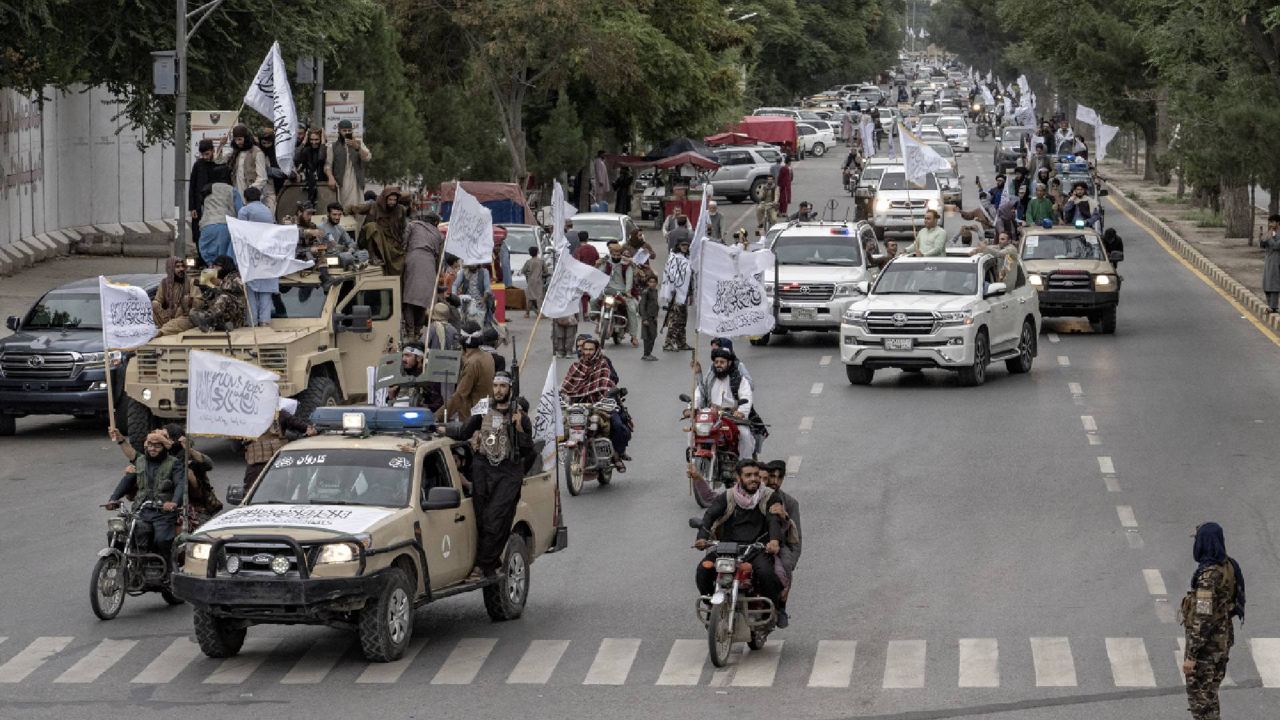WASHINGTON — The Trump administration made it unequivocally clear on Monday that it considers the return of a Maryland man deported to El Salvador out of its hands as President Donald Trump sat down on Monday with the leader of the country currently at the center of his immigration crackdown and the legal battle playing out over it.
Salvadoran president Nayib Bukele also said in the meeting he would not release the man back to the U.S.
The Supreme Court last week ruled that the U.S. is required to “facilitate” the return of Abrego Garcia, who the administration admitted in court filings was mistakenly deported to El Salvador in March as part of its effort to send hundreds of migrants it says are affiliated with gangs to the country. The Trump administration says Abrego Garcia is a member of the MS-13 gang, something the man’s attorney’s have disputed.
In an Oval Office meeting between Trump and Bukele, Attorney General Pam Bondi argued the return of the man, Kilmar Abrego Garcia, was “not up” to the U.S. but that the administration would provide a plane to help facilitate his return to comply with a Supreme Court decision should El Salvador wish for him to be sent back.
“That’s up to El Salvador if they want to return him,” Bondi said. “That’s not up to us.”
Asked if he wanted to return Abrego Garcia, Bukele referred to him as a “terrorist” and said he did not have the power to do so.
The issue continued to develop in court over the weekend, with the administration saying the man remains in El Salvador’s notoriously large and violent “supermax” prison but not providing detail as to efforts to facilitate his return.
And on Monday, the president’s immigration, foreign affairs and legal officials made clear where they stand, with White House deputy chief of staff Stephen Miller declaring during the meeting that “no version of this legally ends up with him ever living here,” noting he is “a citizen of El Salvador,” despite an immigration judge in 2019 barring his deportation to the country due to him likely facing persecution by local gangs.
Secretary of State Marco Rubio, meanwhile, proclaimed during the meeting that he did not “understand what the confusion is.”
“This individual is a citizen of El Salvador,” Rubio continued. “He was illegally in the United States and was returned to his country.”
The secretary of state went on to declare that the “foreign policy of the United States is conducted by the president of the United States, not by a court.”
“And no court in the United States has a right to conduct the foreign policy of the United States, it's that simple,” he added.
Last month, the Trump administration used a 1798 wartime authority, known as the Alien Enemies Act, to fly hundreds of migrants it says are affiliated with MS-13 and the Venezuelan gang Tren de Aragua, to El Salvador, where Bukele agreed to hold them in the country’s notoriously brutal prison.
Bukele, who has been in power in El Salvador since 2019 and is known for his aggressive crackdown on gangs in the Latin American country, touted the joint effort on social media at the time.
The initial deportations sparked a separate legal battle over Trump’s use of the Alien Enemies Act to swiftly deport migrants seemingly without the opportunity to challenge their removal. The Supreme Court earlier this month ruled that the administration can continue to use the authority but must give those being deported a chance to argue against their removal.
Rubio on Sunday said 10 more migrants affiliated with MS-13 and Tren de Aragua were sent to El Salvador in a post on X in which he lso touted the “alliance” between Trump and Bukele.
Trump opened up the Oval Office sit-down praising his Salvadoran counterpart, repeatedly noting that he has known him since he was a “young man,” and expressing gratitude for “helping us out” in his deportation efforts.
The president on Monday also said he has “no problem” with deporting Americans if they are what he called a “homegrown criminal.”
“We're studying the laws right now, Pam [Bondi] is studying,” he said. “If we can do that, that’s good – and I'm talking about violent people.”
Bukele is the first Latin American leader to visit the White House since Trump’s return to office in January.







